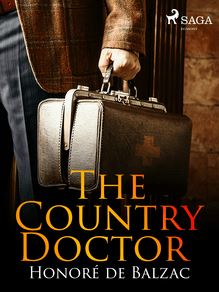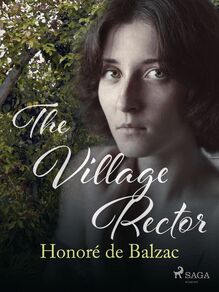Sons of the Soil , livre ebook
184
pages
English
Ebooks
2022
Écrit par
Honoré De Balzac
traduit par
Katharine Prescott Wormeley
Publié par
Saga Egmont International
Vous pourrez modifier la taille du texte de cet ouvrage
Obtenez un accès à la bibliothèque pour le consulter en ligne En savoir plus
Découvre YouScribe et accède à tout notre catalogue !
Découvre YouScribe et accède à tout notre catalogue !
184
pages
English
Ebooks
2022
Vous pourrez modifier la taille du texte de cet ouvrage
Obtenez un accès à la bibliothèque pour le consulter en ligne En savoir plus
Publié par
Date de parution
03 octobre 2022
Nombre de lectures
1
EAN13
9788726668827
Langue
English
In 'Sons of the Soil', Balzac tells an extraordinary story of gentry and peasants, complacency and corruption, jealousy and revenge. And it has a contentious central message: the Revolution upset the balance and sowed new divisions between the classes.
Centred around General Moncornet's chateau and estate in Burgundy, there is a large, fascinating cast of listless ladies and gentlemen indoors who "get what amusement they can out of carefully dressing themselves". Meanwhile, the staff are scheming and the locals con and poach their way through life.
With the skill of Charles Dickens, Balzac draws together the main characters and enmeshes them in a murderous and treacherous plot with numerous serpentine twists.
Fans of 'Downton Abbey' and Dickens' classics, including 'Bleak House' and 'A Tale of Two Cities' will love this.
Honoré de Balzac (1799-1850) was a French novelist and playwright, most famous for a sequence of novels, collectively called 'The Human Comedy'. His signature style was a warts-and-all representation of post-Napoleonic French life, rich in detail and featuring complex, unfiltered characters.
The style means Balzac is regarded as one of the pioneers of European literary realism. He is named as an influence on writers including Emile Zola, Henry James, Charles Dickens, and Gustave Flaubert.
The first novel he published under his own name was 'Les Chouans' in 1829. In 1834 he hit upon the idea of grouping his novels together to record all of society. The result, over a period of years, was 'The Human Comedy', which comprised three categories: 'Analytic Studies'; 'Philosophical Studies'; and 'Studies of Manners'.
Publié par
Date de parution
03 octobre 2022
EAN13
9788726668827
Langue
English


